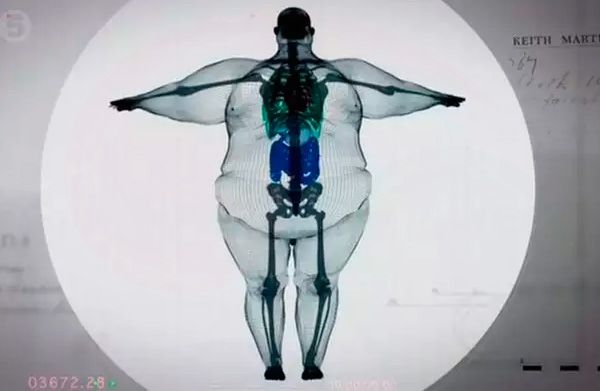
All iLive content is medically reviewed or fact checked to ensure as much factual accuracy as possible.
We have strict sourcing guidelines and only link to reputable media sites, academic research institutions and, whenever possible, medically peer reviewed studies. Note that the numbers in parentheses ([1], [2], etc.) are clickable links to these studies.
If you feel that any of our content is inaccurate, out-of-date, or otherwise questionable, please select it and press Ctrl + Enter.
"Heavy Bones": reality or fiction?
Last reviewed: 02.07.2025
When faced with the problem of excess weight, many people justify their kilograms by saying that they have “heavy bones.” Scientists conducted an experiment to find out whether this fact could take place, or whether it is simply an “excuse” for not taking care of yourself.
In a normal healthy person, the skeletal system weighs approximately 8.5% of the total weight. That is, if a lady weighs 75 kg, then the share of the skeletal system will be only 7 kg. Of course, such a figure is unlikely to be significant for the overall weight indicator. Therefore, writing off extra pounds to the weight of bones is, at the very least, illogical.
It has been established that the weight of bones directly depends not only on their size, but also on their density. At the same time, the bone system of women is initially lighter than that of men. Of course, such factors as a person's motor activity and genetic features also have an impact. But these factors can change the mass of the bone system by no more than 10%, and this is a total of no more than 1 kg of the total body weight.
Just recently, medical experts from Canada conducted a study and determined the reasons why human bones may differ in density.
An experiment was conducted to observe young people aged 14-16. Doctors examined and interviewed more than three hundred teenagers, primarily to determine the intensity of physical activity during the period of active development of the musculoskeletal system.
Based on the results obtained, the experts determined that those people who at least moderately exercised in their youth later had higher bone density than those who were not physically active.
As scientists point out, bone density in young people has been steadily decreasing in recent years. This is due to the fact that teenagers pay little attention to physical activity, being mostly busy with computers, mobile phones and all sorts of gadgets. Therefore, physical condition has gradually begun to fade into the background. Presumably, the hour is not far off when medical specialists will start sounding the alarm about the physical health of the younger generation.
Of course, it is very important to ensure normal bone density in childhood and adolescence. After all, over the years, any person loses bone mass. Bones become thinner for natural reasons, and in medicine this is called osteopenia. As a person ages, the risk of fractures increases: bone mass loses calcium and other minerals, becomes less heavy, less dense and more porous.

What should you do to improve the quality of your bones? Experts recommend: exercise, take calcium and vitamin D courses, walk more often in the fresh air (especially in sunny weather). If you follow the suggested recommendations, your bones will indeed become “heavier” - however, this is unlikely to cause excess weight: a person’s body weight depends mainly on the amount of fat and muscle tissue in the body.
